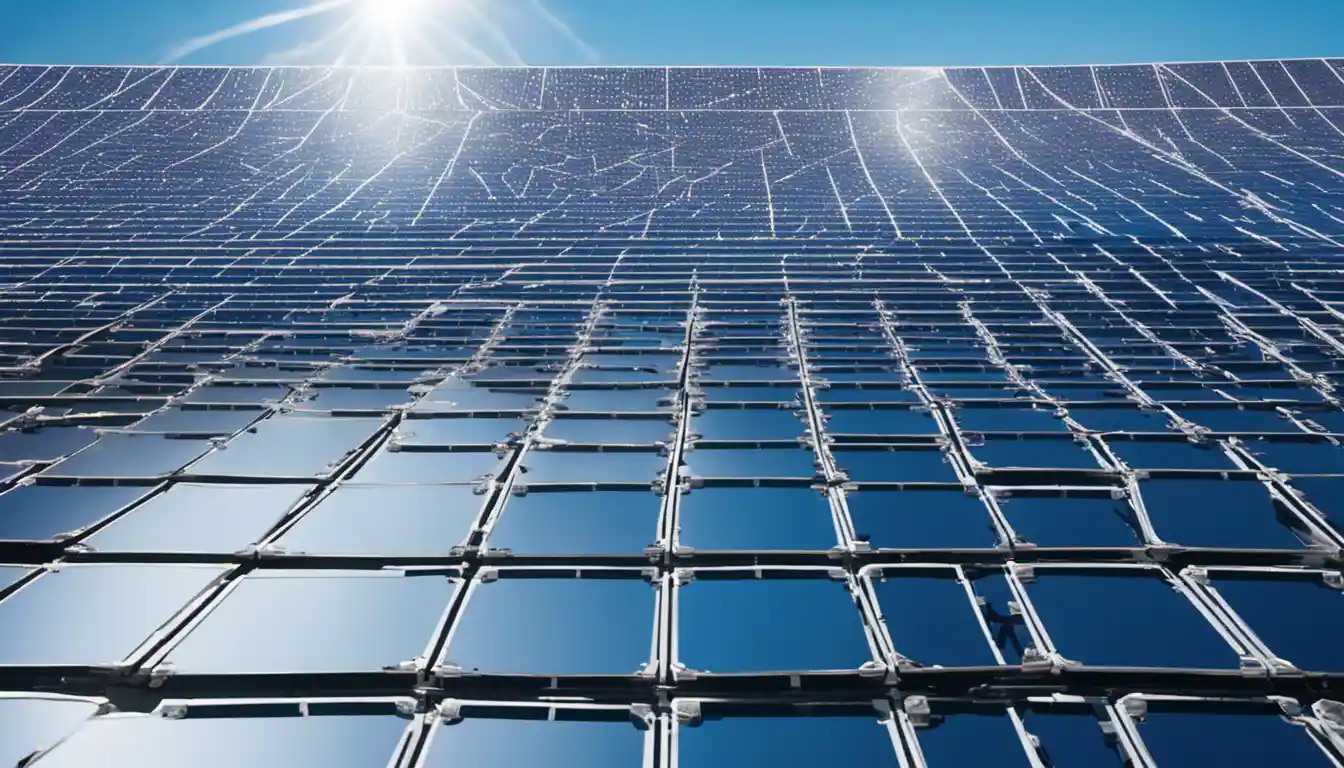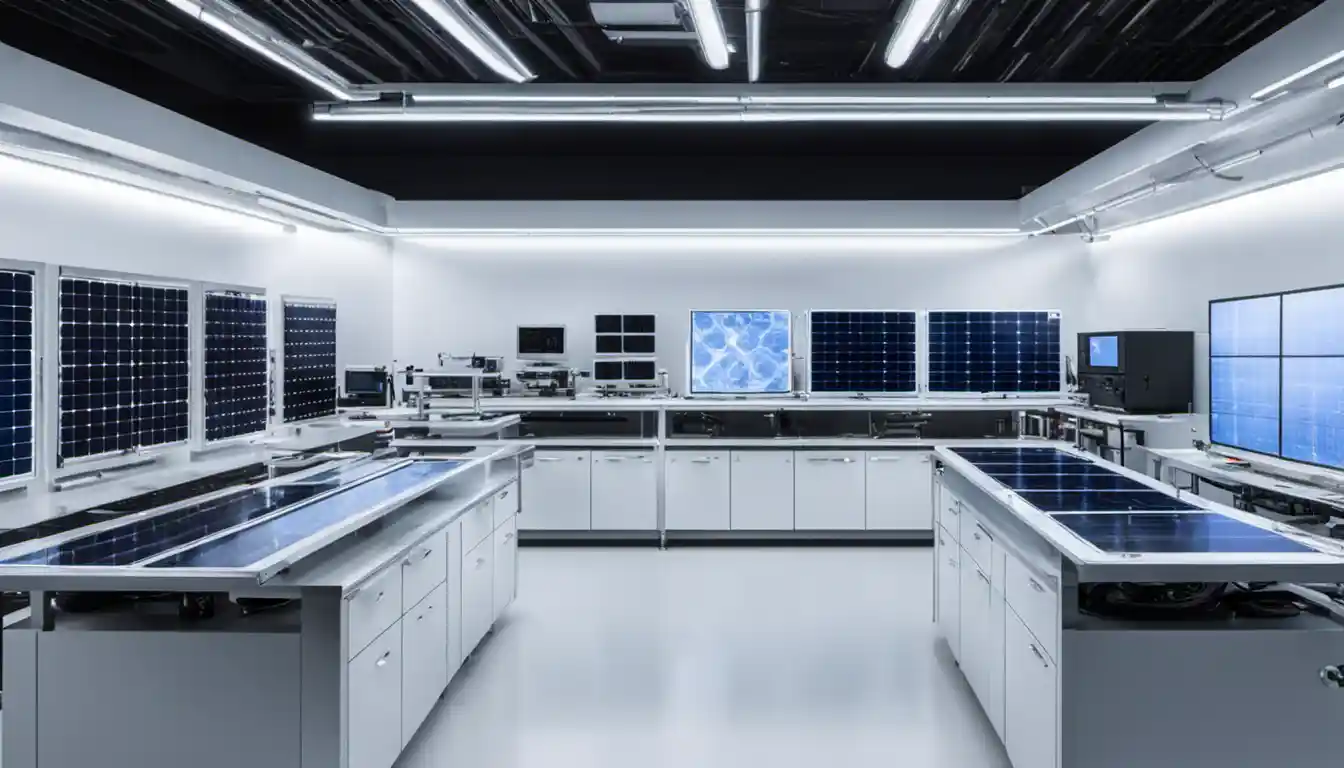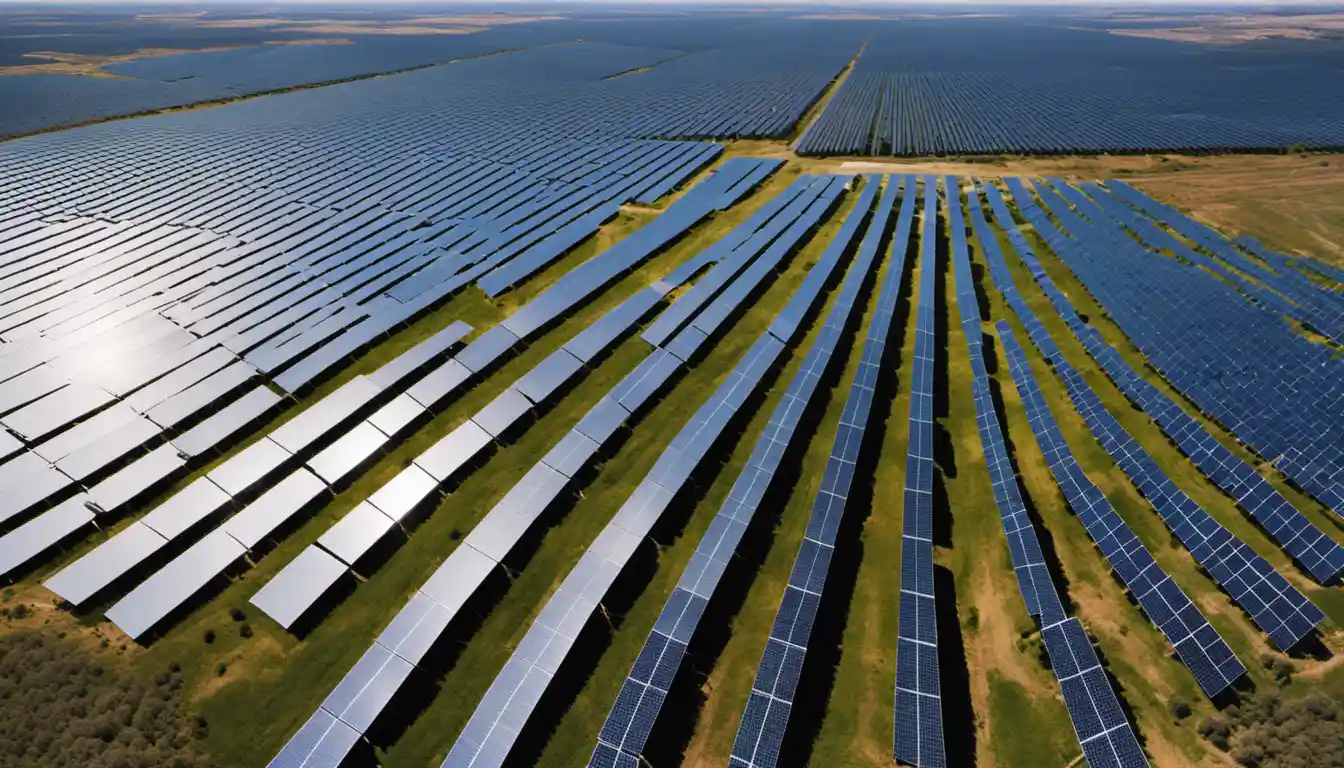Introduction to Solar Panel Efficiency
The most efficient solar panels currently on the market are produced by manufacturers like LG, SunPower, and Panasonic. These panels can reach efficiencies up to 22.8%, higher than the industry average of 15-18%. Despite being more efficient, they tend to be more costly than less efficient panels.
Understanding Solar Panel Efficiency
Simply put, solar panel efficiency refers to how well a solar panel can convert sunlight into usable electricity. It’s determined by the amount of sunlight that strikes the surface of a solar panel and the proportion of that energy converted into electrical power. For instance, if a panel has an efficiency rate of 20%, it means that 20% of the sunlight the panel absorbs is converted into electricity you can use.
Why Solar Panel Efficiency Matters
Every homeowner’s quest is to make the most of their solar power system, and a significant part of that is solar panel efficiency. But why is it so important?
Faster Payback from Most Efficient Solar Panels
The math is straightforward – the more efficient the panel, the more power it produces. Over time, this means you’ll need less electricity from the grid, reducing your energy bills, and speeding up the return on your solar panel system investment.
Importance of Space Efficiency and Lower Impact of Projects
Efficiency is crucial if your roof space is limited or if you want to maximize your electricity production. Higher efficiency means you’ll need fewer panels to generate the electricity you need, resulting in a smaller solar array size and potentially a lower installation cost.
Detailed Look at The Most Efficient Solar Panels of 2023
To help you navigate the dynamic solar panel landscape, let’s take an in-depth look at some of the top performing models on the market.
SunPower M Series 440-watt
SunPower has long been recognized as a leader in the solar industry. The M Series 440-watt panel boasts an impressive 22.8% efficiency rate, widely considered as one of the best on the market. Other attributes include a sleek black design and advanced microinverters that increase energy production.
Canadian Solar HiHero 445-watt
Next up is the HiHero 445-watt panel from Canadian Solar. With an efficiency rate of 21.2%, this panel is a worthwhile contender. It also stands out for its excellent temperature coefficient and high power output even in low light conditions.
REC Alpha Pure 430-watt
Last but not least is the REC Alpha Pure 430-watt panel, known for its innovative cell technology and remarkable 20.9% efficiency rate. The panel packs more power per square foot, which reduces the number of panels needed for your installation.
Understanding the Factors that Impact Solar Panel Efficiency

Many elements come together to impact a panel’s overall efficiency. Let’s uncover what they are.
Backing Material and Its Influence on Efficiency
The backing material is the layer that encapsulates the solar cells. It protects the cells from environmental effects, like weather conditions and harsh UV rays. Panels made with high-quality backing materials generally exhibit higher efficiency.
Role of Solar Cell Type in Determining Efficiency
The type of solar cell used in a panel significantly influences its efficiency. Mono-crystalline cells are generally more efficient than their polycrystalline counterparts.
Wiring and Its Impact on Solar Panel Efficiency
The electricity that a solar cell produces doesn’t just magically appear in your home’s wiring. It has to be carried there, usually by metallic wires. Thicker, shorter, and well-insulated wires generally minimize power losses, enhancing panel efficiency.
Environmental Factors Impacting Solar Panel Efficiency
Remember, efficiency is about how much sunlight is converted into electrical energy. Hence, anything that blocks or reduces the amount of light that hits a solar panel will affect its efficiency. Let’s dissect how various environmental factors play a role.
How Does Temperature Affect Efficiency?
Solar panels love sunlight, not heat. In fact, they prefer cooler temperatures. When the mercury climbs, their efficiency drops – a reality known as the temperature coefficient.
Shading’s Effect on Solar Panel Efficiency
Solar panels need direct sunlight to function at their best. Shading from trees, buildings, dust, dirt – or even bird droppings – can drastically reduce a solar panel’s efficiency.
The Impact of Soiling on Solar Panel Efficiency
Soiling refers to the accumulation of dirt, dust, and other debris on the surface of a solar panel. Heavy soiling can reduce a solar panel’s efficiency by blocking sunlight from reaching the cells.
Weather Conditions and Solar Panel Efficiency
Previous studies have indicated that solar panels can be more efficient in colder, sunny climates, which allow for better conductivity.
Influence of Panel Orientation and Angle on Efficiency
The orientation and tilt of solar panels significantly impact the amount of sunlight they receive, thereby affecting their overall efficiency. It’s best to have them facing South at an angle that captures the most sunlight throughout the day.
How Different Types of Solar Panels Compare in Efficiency

Solar panels aren’t created equal. In terms of efficiency, the race is often between three types: monocrystalline, polycrystalline, and thin-film. Let’s see how they fare.
Efficiency of Monocrystalline Panels and Their Pros/Cons
Monocrystalline panels are known for their higher efficiency rates ranging between 17 to 22%. This is due to the use of a single crystal structure. They also have a sleek black design, but they usually come at a higher price tag.
Efficiency of Polycrystalline Panels and Their Pros/Cons
Polycrystalline panels have efficiency rates between 15 to 17%. They use multiple crystals in each cell, but the split structure affects their ability to perform as efficiently as their monocrystalline counterparts.
Efficiency of Thin-Film Panels and Their Pros/Cons
Thin-film panels have the lowest efficiency rates at about 10 to 12%. They are, however, much cheaper to produce and offer a more aesthetic, uniform appearance. The lower efficiency means you’ll need more space for the same energy output.
Cost-Efficiency of Solar Panels: A Vital Consideration
Solar panel efficiency is important, but it’s not the only metric you should consider. You also need to pay attention to cost-efficiency, which refers to the cost per watt.
Decoding the Cost vs Efficiency Debate
A highly efficient solar panel may cost more upfront, but it could generate higher savings over its lifetime, making it more cost-efficient. On the other hand, a less efficient panel may be more affordable but might offer less savings in the long run.
Is Paying More for Higher Efficiency Worth It?
The answer largely depends on your specific circumstances. For instance, if you have limited roof space, you might want to invest in high-efficiency panels despite the higher cost. But if space isn’t a concern, lower efficiency panels could be a cost-effective option.
Who Makes the Most Efficient Solar Panels?
The quest for ultimate solar efficiency is ultimately driving many manufacturers to push the envelope on their technologies.
Highlighting the Leading Manufacturers in Solar Panel Efficiency
LG, SunPower, and Panasonic are recognized as industry leaders in solar panel efficiency. A few other manufacturers that hold a place of honor include Canadian Solar and REC Group. You may find yourself asking “who makes the most efficient solar panels?” The answer may vary as the industry continues to advance, but these manufacturers have consistently been at the forefront of efficiency.
Why Choosing the Right Solar Panel Company is Important
Choosing the right manufacturer is paramount. You’re not just investing in solar panels, but also in the company that stands behind them.
How Companies are Ranked based on Solar Panel Efficiency

Companies are ranked not just based on the efficiency of their panels, but also on factors like panel longevity, warranty, customer service, and cost-effectiveness. In essence, a company might produce the most efficient solar panels, but if their customer service or warranties fall short, it may not be the best choice.
Choosing the Best Solar Panels: Things to Keep in Mind
In your quest for the most efficient solar panels, remember to consider your own needs, circumstances, and budget.
Crucial Factors Considered in Solar Panel Selection
Your roof’s space and orientation, your power needs, your budget, and even your local weather can all impact the kind of solar panel that’s best for you.
How Many Solar Panels Do You Need for Your House?
A general rule of thumb is that an average house will need about 20 to 25 panels to cover 100% energy usage. However, this is just an estimate. Your actual needs may differ based on factors like energy consumption, available sunlight, and panel efficiency.
Concluding Thoughts on Solar Panel Efficiency and its Importance
Solar panel efficiency is a critical factor when shopping for solar panels, but it’s not the only one. You also need to consider elements like price, warranty, vendor credibility, and your energy needs. In other words, seeking the most efficient solar panels is essential, but marrying that efficiency to your unique circumstances is the key to your solar panel journey.
Frequently Asked Questions (FAQs) on Solar Panel Efficiency
The Possibility of Achieving 100% Efficient Solar Panels
Unfortunately, due to the laws of physics, 100% efficiency is not yet achievable. The maximum theoretical limit, as explained by a principle called the Shockley-Queisser limit, is about 33%.
Current Highest Solar Panel Efficiency Reached
The highest efficiency to date has been achieved by the NREL (National Renewable Energy Laboratory) in a research setting – a staggering 39.2% efficiency but these panels are not commercially available.
Considering DIY Solar Panel Installation: Is it Possible?
Yes, it’s possible to install solar panels yourself, but it’s not necessarily recommended unless you have appropriate training. Solar panel installation can be complex and even dangerous if not conducted properly. It’s usually best to entrust the task to a professional installer.
Which Solar Panels Guarantee Long-Lasting Efficiency?
Almost all solar panels lose a tiny bit of their efficiency each year, usually about 0.5 to 1%. However, high-quality panels produced by reputable manufacturers are designed to maintain their efficiency for longer! A good warranty will also guarantee a certain level of performance even after twenty or twenty-five years.
Solar panels are leading the way to a greener and more sustainable future. Understanding solar panel efficiency is crucial to making an informed decision about which solar power system is right for you. And remember, there’s no one-size-fits-all solution – the most efficient solar panels for your needs are those that blend performance, value, and sustainability in a package tailored to your needs. As a solar energy expert with 20 years of experience in the field, I can certify that the journey to solar power, though complex, is worth every step taken under the sun.



